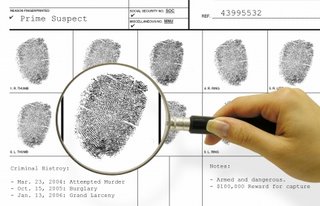
Identity fraud hit 10 million victims in 2008 – a whopping 25% jump from 2007. The reason for this rise? Smarter criminals and more data breaches, combined with the dropping economy.
This information, contained in a new report by Javelin Strategy & Research, wasn’t surprising, because all varieties of theft increase when the economy is in trouble. What was surprising was the source of much of the theft.
Most of us think first of internet when we take precautions against identity theft, but it turns out that a large percentage of identity theft still occurs through “traditional” means.
In interviews with 4,800 people who had been victimized, researchers found that 35% knew how their identities had been stolen, and traditional means were cited in 78% of the cases. Lost or stolen purses and wallets accounted for 4 times more thefts than other means. Those other means included theft of information while conducting a purchase either in a store or over the phone, theft of documents from the home, and stolen mail.
Of course, the theft of a purse or wallet is much more noticeable than the theft of your credit card numbers while your card is out of your sight in a restaurant or other retail establishment.
65% of victimized consumers have no idea how their identities were stolen, and that, of course, points to the internet. Malware programs can quietly steal passwords and account numbers without consumer detection. And of course the security breaches at major banking institutions and organizations such as the Veteran’s Administration have given thieves access to millions of pieces of data.
The sad thing for many consumers is that they don’t know their identities have been stolen until they become victims of fraud. In fact, they might not find out until they’re turned down for a job, an apartment, or a loan – or until they receive notice from the IRS that they failed to report all their income.
Since this kind of theft is expected to rise, the best course of action includes both prevention and early detection.
Prevention should include:
• Keeping sensitive paper documents in a locked file cabinet, and shredding documents you no longer need.
• Keeping your social security card and extra credit cards locked up at home – not in your purse or wallet.
• Regularly updating spyware, malware, and anti-virus programs on your computer
• Keeping personal information personal – don’t give out information on social networking sites. (This could protect your life as well as your finances.)
• Buying online only from secure servers and never giving personal information to anyone who telephones you.
Early detection includes:
• Regular checks of your credit report.
• Regular checks of all bank and credit card statements
• Enrollment in an online or mobile credit alert system – to let you know of any and all changes on your credit report.
Author: Marte Cliff
FreeCreditScorequick.com your resource for free credit report offers and the most current information regarding credit news. We also provide free tips and techniques to repair your credit for free. “Remember your credit report and credit score is more important than ever now.”
